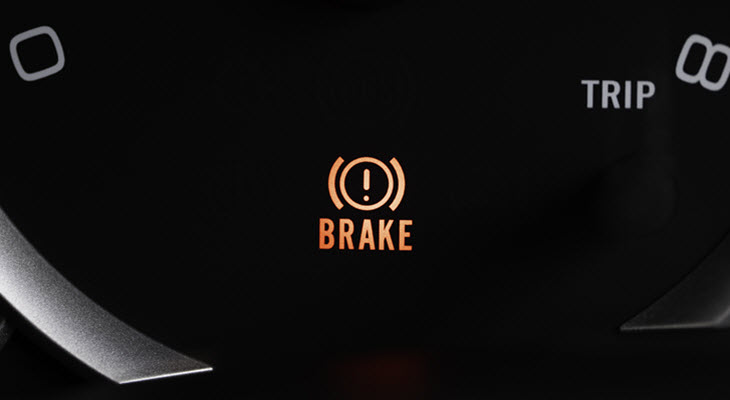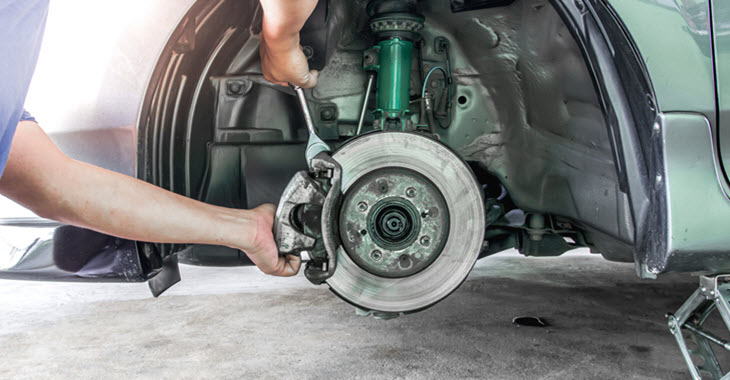A Comprehensive Guide to BMW Brake Repair & Maintenance
When you think of luxury and performance in the automotive world, BMW is often one of the first names that come to mind. Owning a BMW means enjoying a dynamic driving experience, but with that exhilaration comes a responsibility to ensure your vehicle is safe. One crucial aspect of BMW maintenance is taking care of your brakes.

The Significance of Brake Maintenance
Your BMW’s braking system is arguably the most critical safety feature of the vehicle. It ensures that you can bring your car to a stop quickly and efficiently, protecting you, your passengers, and others on the road. Neglecting your brake system can lead to reduced stopping power, increased stopping distances, and, in severe cases, brake failure. To avoid accidents and costly repairs down the line, it’s essential to keep your brakes in excellent condition.
Signs That Your BMW Brakes Need Attention
It’s crucial to pay attention to signs that indicate your BMW’s brakes require attention. Some common indicators include:
- Squeaking or squealing sounds: When you hear a high-pitched noise when you apply the brakes, it’s a clear sign that your brake pads are worn down and need replacement.
- Vibrations or pulsations: If you feel vibrations or pulsations in your brake pedal when you apply the brakes, it could be due to warped brake rotors. This issue can affect braking performance and should be addressed promptly.
- Soft or spongy brake pedal: A brake pedal that feels soft or spongy can be a sign of air in the brake lines or a brake fluid leak, both of which require immediate attention.
- Reduced brake responsiveness: If your brakes are less responsive, taking longer to stop the car or requiring more effort to apply, it’s a sign of worn brake pads, fluid contamination, or other issues.
- Warning lights: Modern BMWs are equipped with advanced onboard diagnostic systems that can alert you to brake system issues through warning lights on the dashboard. Pay attention to these warnings and have your brakes inspected by a qualified technician.
Routine Brake Maintenance
To keep your BMW’s brakes in optimal condition, it’s crucial to follow a regular maintenance schedule. Here’s what you need to do:
- Inspect and Replace Brake Pads: Brake pads wear down over time due to friction. Depending on your driving habits and the type of brake pads you have (standard or high-performance), you may need to replace them every 20,000 to 60,000 miles. Regularly inspect your brake pads and replace them when they are worn down to the minimum thickness specified in your BMW’s owner’s manual.
- Check Brake Fluid: Brake fluid is essential for proper brake operation. Check your brake fluid reservoir regularly and top it up as needed. Brake fluid should be replaced according to your BMW’s recommended service intervals, typically every two years.
- Examine Brake Rotors: Brake rotors should be inspected for signs of wear, warping, and scoring. If they are too thin or damaged, they may need to be resurfaced or replaced.
- Inspect Brake Lines and Hoses: Ensure that your brake lines and hoses are in good condition, without any signs of cracks or leaks. Damaged lines or hoses can lead to brake fluid loss and diminished brake performance.
- Regular Brake Flush: Over time, moisture can build up in your brake fluid, reducing its effectiveness. A brake flush, which replaces old fluid with fresh brake fluid, is recommended every two years.
Choosing a Qualified BMW Brake Technician
When it comes to your BMW’s brakes, it’s crucial to choose a qualified technician or service center. Here’s what to look for:
- BMW-Certified Technicians: BMWs are sophisticated vehicles with unique engineering and technology. Opt for technicians who are certified by BMW or have extensive experience working on BMW models.
- Quality Parts: Ensure that the service center uses high-quality OEM (Original Equipment Manufacturer) or equivalent brake parts. Quality parts are essential for maintaining the performance and safety of your BMW.
- Diagnostic Tools: Look for a service center that utilizes advanced diagnostic tools to identify brake issues accurately and efficiently.
- Transparent Pricing: Ask for a clear, detailed estimate before any brake repair work begins. A reputable service center should be transparent about their pricing and inform you of any additional charges before proceeding with the repair.
- Warranty and Guarantees: Inquire about warranties or guarantees on both the parts and labor. This provides assurance that the service center stands behind their work.

Ultimate Bimmer Service for Your BMW Brakes
Maintaining your BMW’s brakes is essential for both safety and performance. Regular brake inspections, prompt attention to warning signs, and following a routine maintenance schedule are all critical steps in keeping your BMW’s brakes in top shape. Moreover, choosing a qualified technician and using quality parts ensures that your brakes are maintained to the manufacturer’s standards. Whether you’re driving a classic BMW or the latest model, taking good care of your brakes will allow you to enjoy the exhilaration of your Ultimate Driving Machine with confidence and peace of mind. Visit us from nearby Carrolton and Dallas, TX areas!


